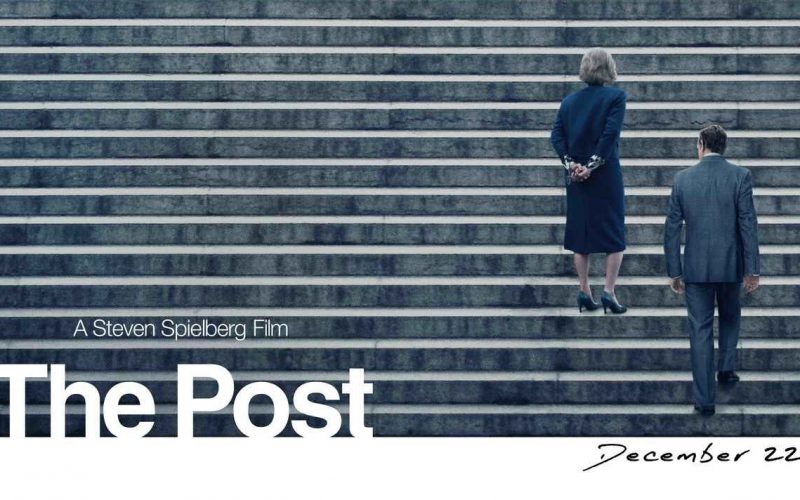The Post (2017) – Review.
In 1971 the New York Times published details of a secret report which unequivocally stated that the United States were going to lose the war in Vietnam, that this was something that was known to successive administrations and, knowing this, American soldiers were still being sent to the other side of the world where they were dying in the tens of thousands. The reason for this? The government were afraid that if they were to pull out then it would have been seen as a failure and would impact the reputation of the United States around the world. The report also revealed thousands of other issues and secrets including the fact that the US had interfered with Vietnamese elections.
The war was still raging at the time and this news sent shockwaves throughout the country and confirmed what many people were already beginning to suspect – that their government was keeping secrets from them and, because of these secrets, sons, brothers and fathers were being killed.
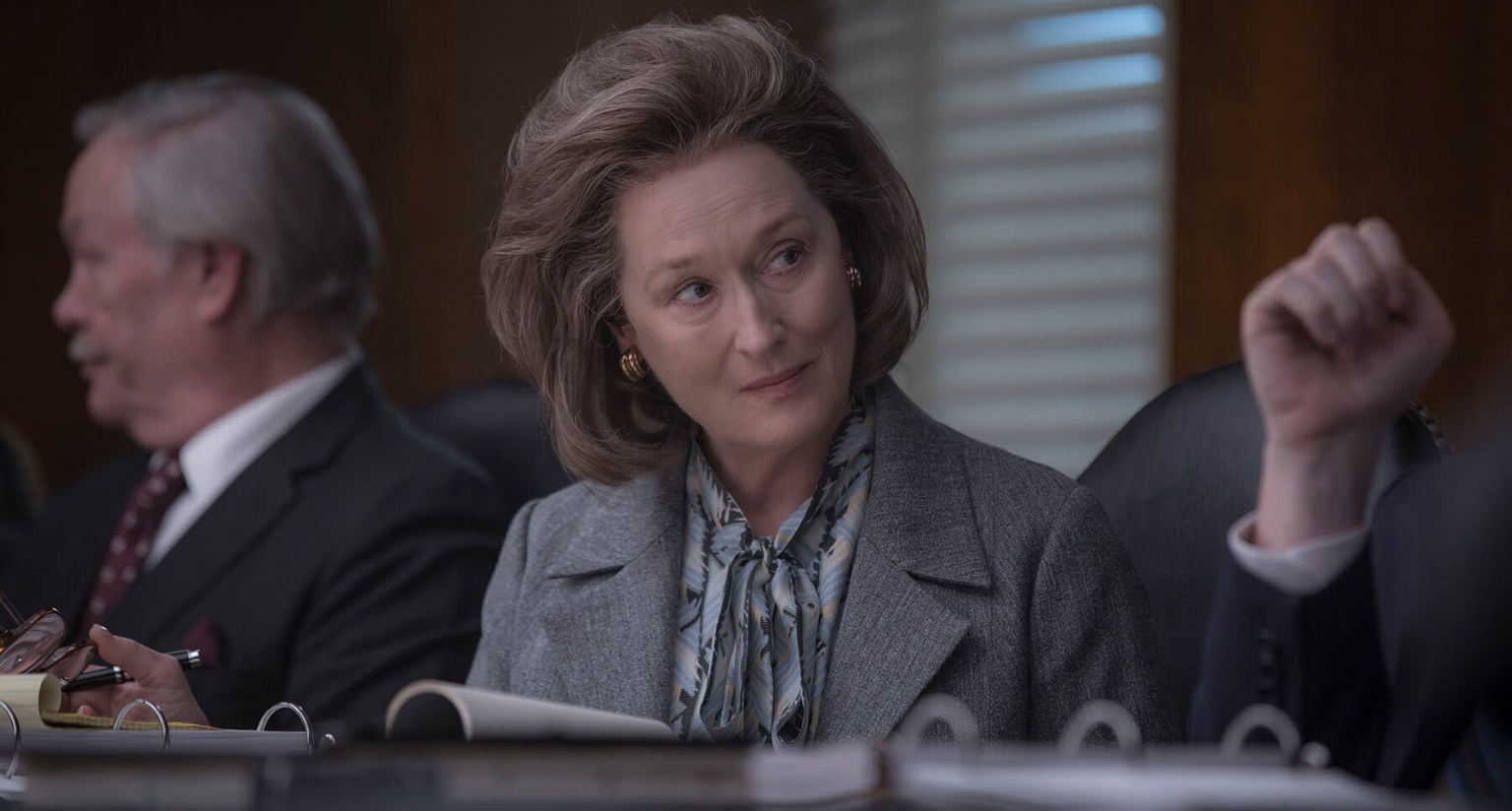
Steven Spielberg’s new film, The Post begins just before the New York Times story broke. Ben Bradlee (Tom Hanks), the editor of the Washington Post, a small family newspaper run by Katherine Graham (Meryl Streep), begins to suspect there is a big story coming because one of the New York Times’ chief reporters, Neil Sheehan, hadn’t had anything published for a while. Bradlee tried desperately to find out what it was and was as surprised as anyone else when the news broke. The Times seemed to have made the scoop of the century but then the Nixon government took the newspaper to court and got an injunction on the publication of any more stories on the grounds that they apparently put US Soldiers in harm’s way.
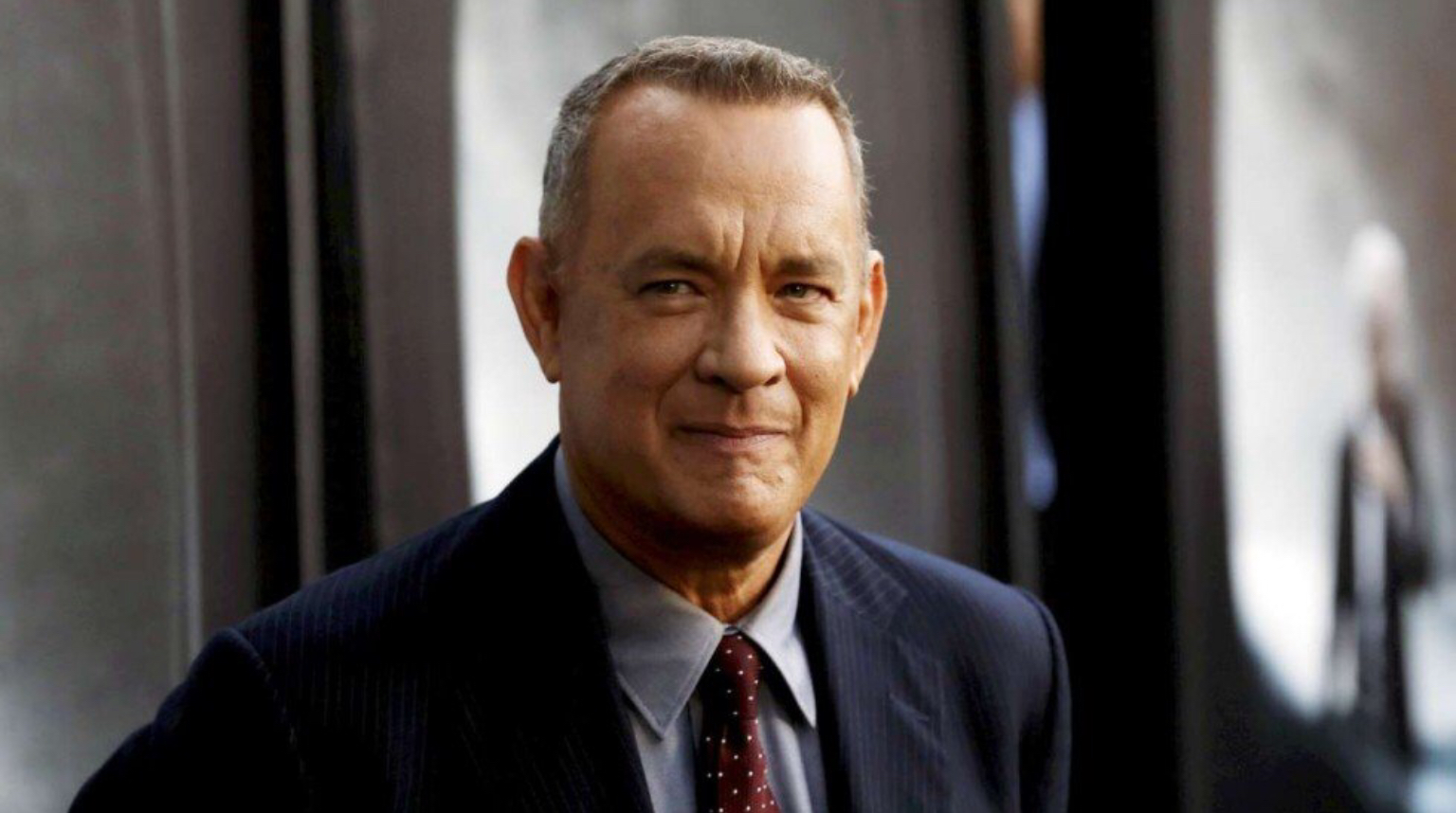
The Post also managed to get their hands on a copy of the report and were faced with a dilemma. Knowing that the government wanted the story shut down, publication of the story could mean Bradlee, Graham and the reporter on the case, Ben Bagdikian (Bob Obenkirk) could all go to prison placing the future of the newspaper in jeopardy (it had just been floated on the Stock Exchange and there were worries that the bankers could pull out), should they take up the lead from The Times, fight for the first Amendment and print their own stories.
Why this film should be made now is obvious and Spielberg has been very vocal about it being a response to the Trump administration’s attempts at either shutting out the media or accusing them of outright lies or ‘fake news’. The Post is a film about the importance of having a real and free press who can report without fear of retribution from whoever is in charge at the time. There are obvious parallels with the recent attempt to stop the publication of Michael Wolff’s book Fire and Fury which reports on the calamities of the first few months of Trump’s presidency.
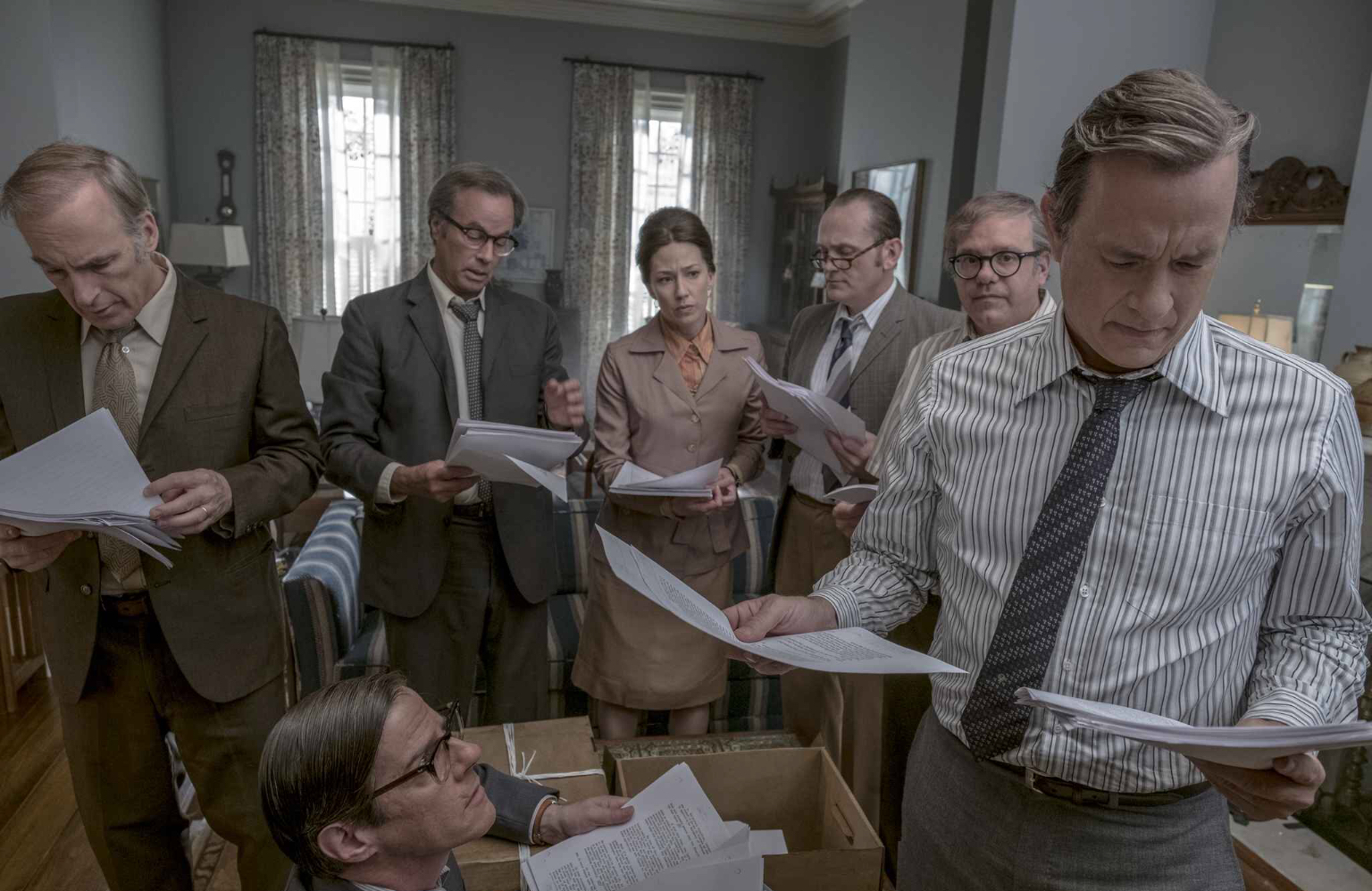
As you would expect from a Steven Spielberg film, The Post is an extremely well-made thriller with a real sense of urgency, especially in the final moments when the decision is made. Before going into a film like this you will likely have certain expectations and these will mostly be fulfilled. There’s very little in The Post that hasn’t been seen before. Its aim is to be a companion piece to Alan J. Pakula’s 1976 classic, All The President’s Men and, whilst it doesn’t manage to scale the same lofty heights, it would certainly work as the first part of a double bill. The newsroom scenes are very much like Pakula’s film with the low angles and the dominance of the fluorescent lights above the characters.

One minor failing of The Post is that it doesn’t make the newsroom into quite the character that it was in All The President’s Men. Part of the reason for this is because the focus is slightly different. The Post is not a film about the process of uncovering the truth. There is one scene in which Bagdikian phones various people whilst trying to locate a person of interest. This is similar to the scenes in All The Presidents Men with Dustin Hoffman and Robert Redford but, as a whole, The Post lacks this forensic detail. It’s much more focused on the bigger picture.
The performances, as you would expect, are excellent. When you have a cast that includes Tom Hanks, Meryl Streep, Bob Obenkirk, Bradley Whitford, Matthew Rhys, Sarah Paulson, Bruce Greenwood and Alison Brie, you’d expect nothing less. Hanks plays the editor in a way that you would expect an editor to be. He’s not a J Jonah Jameson type of character but he’s in that general direction.
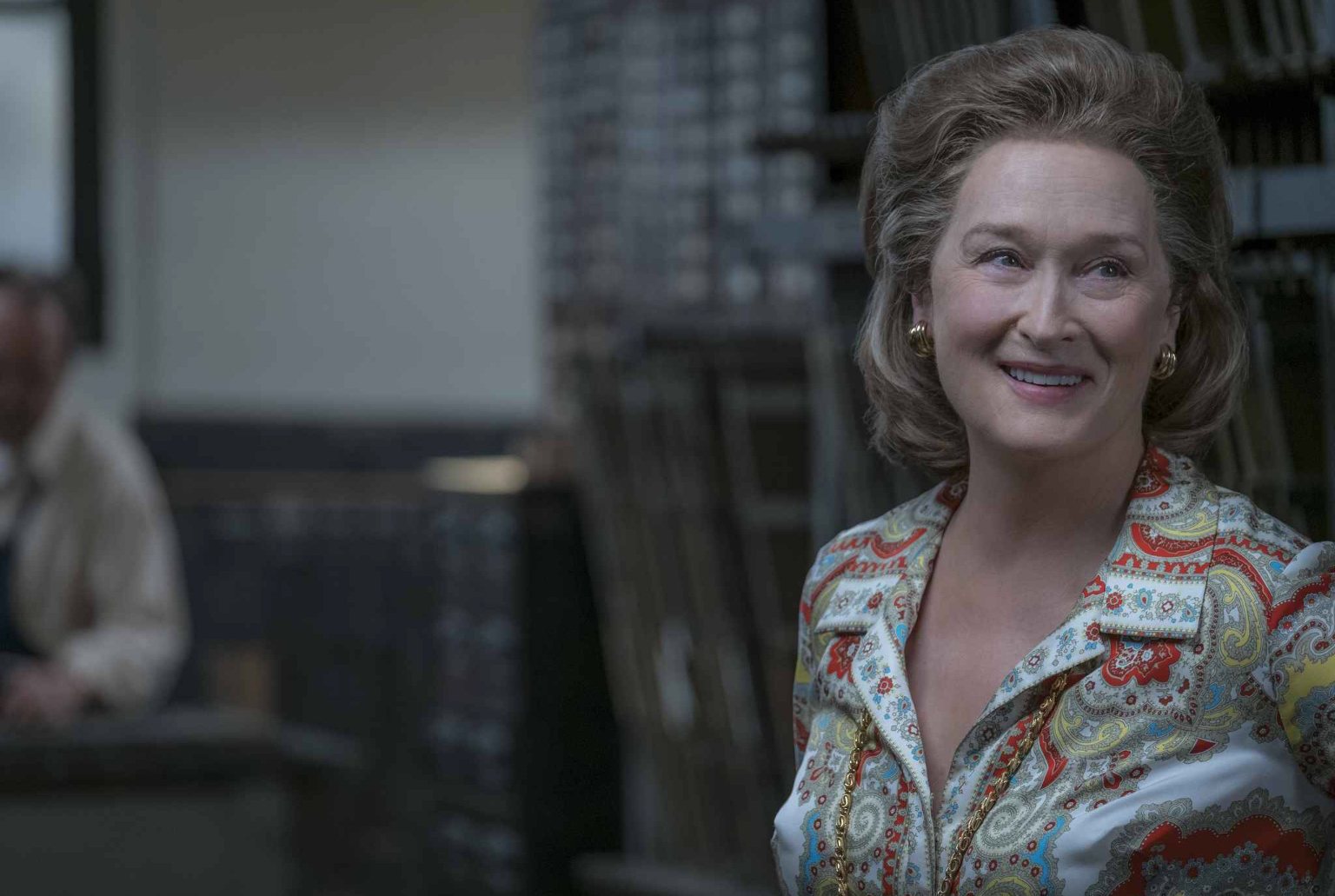
If The Post belongs to one person though it’s Meryl Streep. Having seen the trailer I thought Katherine Graham would have been a tough as nails hard-ass, someone who was running the Newspaper with grit, fury and determination. Within the first few minutes we find out that this is not the case. She isn’t intimidating but is instead intimidated. She’s the only woman in a man’s world and she is constantly bullied or ignored, always struggling to assert herself. Her nemesis is Bradley Whitford’s brilliantly played Arthur Parsons. He is almost unrecognisable in the role and reminded me of Claude Rains’ wonderful bad guy, Senator Joseph Paine, in the 1939 Frank Capra classic Mr Smith Goes to Washington. Although he is a straight bad guy, he does provide the means for Graham to grow from a timid woman into the head of a very successful business. If any other actress played Graham like Streep does I suspect she would be currently showered with awards but because it’s Streep, we expect nothing less.
The Post is certainly a film for our time, steeped in contemporary social relevance. It’s entertaining, enthralling and reveals an important fight in US history. Whilst it might not reach the heights of All The Presidents Men (in fact it reminded me of Ron Howard’s 1994 film The Paper), it’s still a solid piece of work by one of the most accomplished and important directors of our time.
Film ‘89 Verdict – 8/10
The Post is on general theatrical release in the U.K. and U.S. now.

